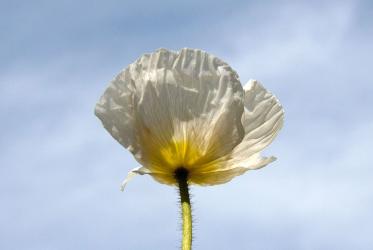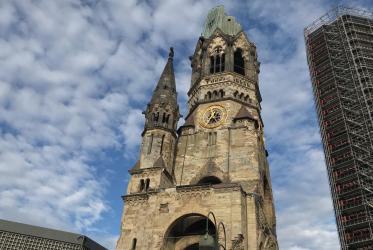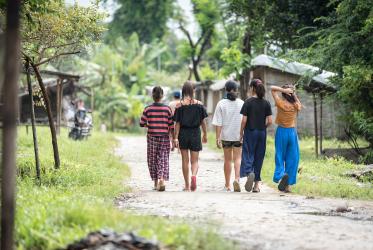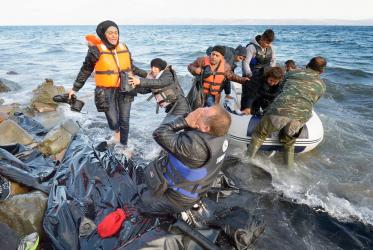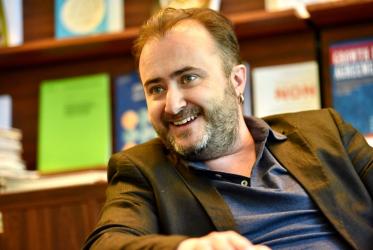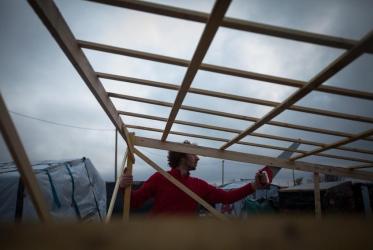Displaying 61 - 80 of 196
Tveit: “What does mutual accountability mean?”
15 November 2018
Church and Peace group calls for “active remembrance”
15 November 2018
EKD delegation, other visitors grace WCC
26 October 2018
WCC president for Europe: “Develop local dialogue”
22 October 2018
Children on the Move forum gathers in Rome
16 October 2018
WCC honours refugee work of Loïs Meyhoffer
13 September 2018
Catholics, WCC map future together after papal visit to Geneva
05 September 2018
Assisi: On the ecumenical pilgrimage into a more sustainable future
03 September 2018
#WCC70: Fellowship of women and men – with ups and downs
17 August 2018


